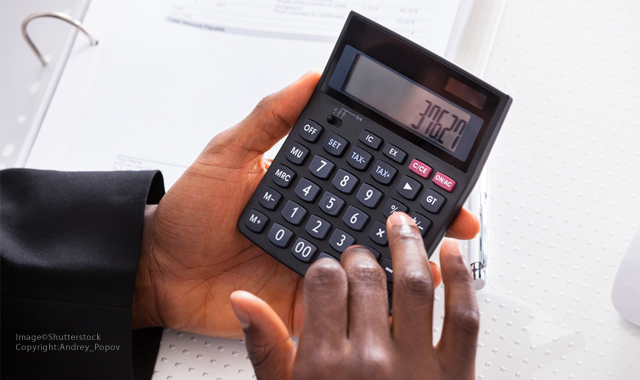- Best Practices New Normal
- Digital Dentistry
- Data Security
- Implants
- Catapult Education
- COVID-19
- Digital Imaging
- Laser Dentistry
- Restorative Dentistry
- Cosmetic Dentistry
- Periodontics
- Oral Care
- Evaluating Dental Materials
- Cement and Adhesives
- Equipment & Supplies
- Ergonomics
- Products
- Dentures
- Infection Control
- Orthodontics
- Technology
- Techniques
- Materials
- Emerging Research
- Pediatric Dentistry
- Endodontics
- Oral-Systemic Health
5 important things to know when renewing your dental office lease
Planning ahead is key to negotiating a lower lease rate.

Leases and lease renewals are not typically conducted on a level playing field. After all, the landlord is in the real estate business and most doctors are not. By planning ahead and having professional representation, it is possible to negotiate a lower lease rate and receive a substantial tenant improvement allowance and free rent.
How does the lease renewal process work?
An important clause found in a standard lease is the renewal option. This allows you to extend your lease for a predetermined amount of time (often three, five or 10 years) by giving your landlord advance written notice. Renewal options include terms for specific lease rates, concessions such as free rent and tenant improvement allowance, and whether a new base year for operating expenses will be granted. Whether or not a renewal clause exists in the original lease, all of these terms are negotiable and play a large role in the financial structure of a lease renewal.
More from the author: Why a broker may be beneficial for your next office lease negotiation
Renewal negotiations are most effective when conducted in the proper time frame, by having multiple viable relocation options and creating a strong posture to maintain the upper hand.
When should the process begin?
As a rule of thumb, you should begin to consider the renewal process 12 to 18 months in advance of your lease’s expiration. This is recommended so that you can compare all relocation options in the market before your current lease options expire. Tenants who miss their lease options incur more risk. Landlords view this as an opportunity to push rents higher as the window of opportunity to relocate closes. If tenants holdover (stay in the space after the lease expires), they often see penalties of 150 to 200 percent of their last month’s rent and can also incur damages if they holdover without permission. The bottom line is that if there is not ample time to relocate if necessary, the landlord has a strong upper hand.
What type of cost savings can be achieved through a successful renewal?
If properly negotiated, you can achieve significant rent savings, a build out allowance, free rent and other concessions. It is very common to start a lease renewal term at a lower lease rate than what you are currently paying. In many markets, landlords are offering aggressive concessions and more attractive lease terms to good tenants to keep their buildings leased and avoid vacancies. The amount of overall savings will depend on the availability of competitive vacancies, the efficiencies of the buildings, and your market knowledge and ability to negotiate business points.
What are some common mistakes practices make during the process?
One of the most common mistakes practices make is negotiating without the help of a commercial real estate professional, specifically one who specializes in representing health care providers. Some believe they can save money by not using an agent, but to benefit in real estate, leverage is the key to posture. Landlords are in the real estate business and negotiate with professional guidance. Selecting an expert to represent you provides the leverage needed to receive the best possible lease terms. Further, landlords are typically responsible for paying commissions, so professional representation is available to you at no out-of-pocket costs.
Another mistake practices make when entering into a lease renewal negotiation is not being familiar with their current lease terms and risk exposure. Prior to contacting the landlord about a lease renewal, you should be well aware of your current lease terms, including every option and deadline. Most leases contain options that must be exercised within a specific time period, typically six to 12 months prior to the lease’s expiration. If you allow this period to pass, you risk losing all rights outlined in the option, which can cause the negotiations to begin at a disadvantage.
Trending article: Why having a good credit score can boosts your dental career
How do I calculate what I am currently paying per square foot?
Knowing what you are already paying per square foot is especially important if you are thinking about renewing your lease. What you are paying now versus what buildings are leasing for in your immediate area can be vastly different, especially if your lease has had automatic escalations in the rate over the term of the lease. The way to calculate your price per square foot is to multiply your monthly rent by 12 months and divide it by your square footage. Keep in mind that NNN or CAM charges (operating expenses for the property) are also calculated in the same manner.
Summary
Successfully negotiating a lease renewal is more than bartering, bluffing or asking for a good deal. Landlords and their professional representatives are in the full-time business of maximizing their profits, even if it means taking advantage of uninformed tenants. You can level the playing field by engaging your own professional representation, gaining competitive market knowledge and having multiple options for your office space. When done properly, a well-negotiated lease renewal can have a dramatic impact on your practice’s profitability.
